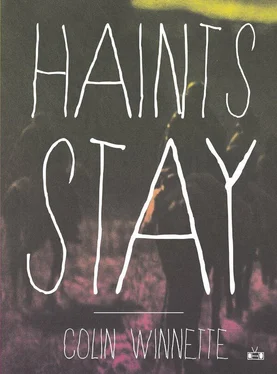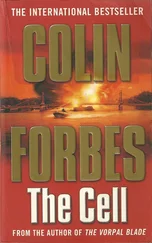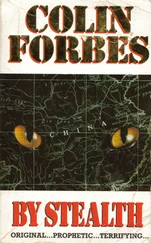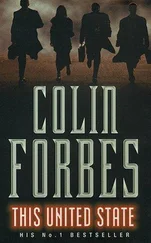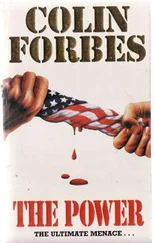Bird kept the gun near his pillow. He watched the fire in its metal. He had not wanted to become a gunfighter but it seemed like he was going to have to become a gunfighter. Mary did not have the follow-through for it, even if she was a better shot.
“Please stop staring at the gun,” said Mary.
“I’m thinking,” said Bird.
“About the gun?” said Mary.
“About having to use the gun some day.”
“It is thinking like that that will make it so,” said Mary.
“That’s foolish,” said Bird.
“You are an orphan who doesn’t have the capacity for reason or high thinking. In his whole life my father never once drew his gun.”
“And he was murdered,” said Bird.
“You’re frightening me and making me feel alone,” said Mary. “You are supposed to be my little brother.”
“I am not little.”
“You are a cripple.”
“I’m not a cripple.”
“I do not want our friendship to go on like this. You need to think of something else to talk about and think about other than guns and killing and dying. I won’t have any more of it.”
“You sound like Martha used to sound,” said Bird.
They were silent for some time. Mary might have slept. Finally, Bird said, “I am glad you’re here.”
Mary did not respond, but she shifted, eyes closed, to face either him or the fire.
In the morning, they were friendly again. They all but finished the bread, then gathered small rocks from behind the building. They sat, leaned against the building, and took turns trying to throw the rocks into a bowl they had set a few feet away from them.
At first, neither could do any more than hit the side of the bowl and scoot it an inch or so in either direction. After some time, they started landing the rocks in its center. Bird landed four in a row then turned to Mary and said, “I would like to go into the other houses and find bullets for the gun.”
“It makes no difference to me,” she said, “but it is not a path I would pursue.”
“I don’t know what we’re to do here,” said Bird.
“We can do anything we like,” said Mary. “We are on our own now.”
“I don’t know what that means,” said Bird.
“It does not mean anything,” said Mary. She tossed her last rock at the bowl and it ricocheted off the side.
“I have a scared feeling,” said Bird, “and I cannot get rid of it.”
Martha watched the killer make a modest camp. From a low hill, she could make out his shadow and then, with the light of his fire, his face and the baby in his arms. He held the baby’s face beneath his jacket, and he rocked it for several minutes. Then he set it to sleep on a pile. She watched him pick at the fire and set his heels by its outer coals. She worried that he would look up toward the night sky and see her outline on the horizon, or that he would be able to hear her breath working its way down the hill and into the branches of the trees above him. She seemed to be breathing abnormally. Snorting like a beast. Heaving like her father in the throes of a coughing fit.
The killer did not sleep, but picked at the fire whenever his head began to drop, or wandered the small circle of his camp. He did not smoke. He did not sing or talk to himself. He was still up until the moments bordering sleep, and then he moved just enough to keep it from overtaking him. Or so it seemed from her vantage. She studied him and tried to know him well enough to make a plan. He was like a fox in its den, or a snake in its pit. She wished she was truly a sharpshooter, able to pick him off safely from a distance. She did not think she could surprise him. She was not a faster draw. If it came to a fight, she would not be victorious. There was a chance she could outride him, seeing as she was only one, and he and the child were two. She slid herself back down the hill and out of view. Her horse was tied up, shadowed by a cluster of thin trees, but still visible if one were to happen upon them. She made herself flat against the dark hill.
During the night, birds settled on either side of her and picked at the hill for insects or seed. She was still and they moved over her and around her indifferently. They were focused on their task. They squeaked, but seemed to communicate nothing. She felt pity for them that they had no higher calling. But there was something simple and direct about the way they lived, and that was admirable. She turned over and crawled a few feet on her belly, scattering the birds. She pointed her right elbow into the dirt and positioned the rifle against her upturned palm and its corresponding collar pocket. She fired and hit the dirt between the fire and the man. He was up then and headed for cover, but she managed two more shots that sent him sliding into the dirt. She was astonished and proud. Each shot had felt less natural than the previous and she had become convinced she was incorrect in her decision to open fire from a distance, rather than to overtake him on the path. But it had worked. There it was. He was slain.
She hurried down the hill, leaving the gelding tied on its opposite side, along with her things. She came upon the body and fired several more shots into its hulk, splitting his leathers and spitting blood onto her leggings and thin-soled shoes. She winced. The baby was screaming unlike any child she had heard before. She lifted it and tried to settle it by whispering sweet things and bouncing it, but nothing worked. She dug through the killer’s belongings and could not find much of use. The food was far from edible and his weapons or tools were crude and few. She took a blanket for the baby and investigated the corpse’s pockets. Again, nothing.
She carried the screaming baby back over the hill to her horse. Snow began to fall. It had hardly felt cold enough for snow before, but there it was, drifting along like ash at the edge of the world.
She held the baby close to her chest as she pulled herself onto the horse. She had no milk to offer the child, nothing to warm it other than the blanket, so she undid her blouse and positioned the baby directly against the warmth of her body. She did up what she could of her shirt over the baby and wrapped herself in the blanket. Again and again, the baby took hold of her nipple and tried to wrench life from it. Nothing came. It was painful, but she let the baby work at her, as much as she could stand it. It was the least she could do. She rode slowly, trying to trace the route they had taken from the town where the boy and Mary were waiting.
Soon, though, the path was indistinguishable. A thin blanket of snow covered every inch of ground, and weighted the branches of the fir trees that seemed to go on endlessly in every direction. She fired her rifle into the air and the baby screamed, but otherwise would not let up.
Then there was a whole slew of men Brooke had killed for what most would call honorable reasons. He wandered a bit after Sugar left, without a home or a town to call his own. He had no friends and no sense of needing any. He needed food and reasons to stay upon his horse, which were running out as he came upon more and more miles of nothing. Finally, he crossed paths with a group of men celebrating a recent victory over a team of bandits riding north, looting small towns along the way. They had slain the bandits, returned a percentage of their loot, and were now celebrating in the woods. They liked to drink and sing and Brooke soon learned that he too liked those things. He spent the night with them — they were merry enough to accept him as one of their own, knowing nothing about him, where he’d come from or where he was going. Soon, though, he learned that this militia was made entirely of men looking to blur their pasts. They rode nameless and unadorned. They relied on no one outside of the group, and were slow to trust on less celebratory occasions. They had their fair share of inner turmoil, but it was repeatedly squelched by an unspoken understanding that the whole thing only worked if they worked together. As soon as they turned against one another they would be back on their own again. For these particular men, the fear of that was enough to keep them riding quiet, day to day.
Читать дальше
